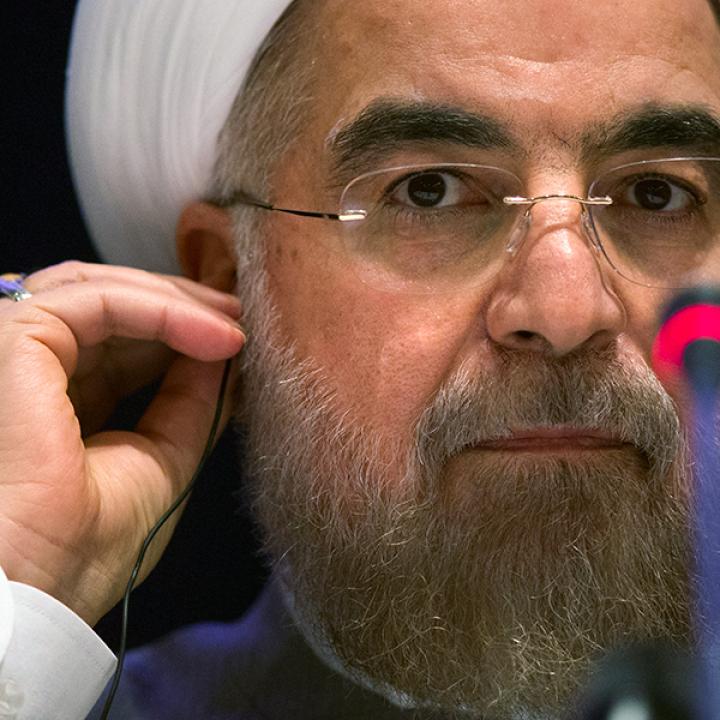

Despite the fiery rhetoric, Washington has seen much worse over the course of its long non-relationship with the Islamic Republic.
Tensions between Tehran and Washington are building as new sanctions approach on August 6, the first set since the U.S. withdrawal from the Iran nuclear deal. Secretary of State Mike Pompeo’s scathing indictment of the Iranian leadership in a July 22 speech came amid threats from President Rouhani, backed up by Supreme Leader Khamenei and Islamic Revolutionary Guard Corps commanders, which then precipitated a twin salvo of fiery counter-threats by President Trump and National Security Advisor John Bolton.
Yes, but: This doesn’t mean war is imminent between Tehran and Washington. The Trump administration’s strategy still centers on economic pressure rather than military measures. And Iran’s leadership is nothing if not the master of snappy responses to threats from Washington, which offer a welcome distraction from mounting economic pressures at home.
The background: U.S. military restraint over multiple administrations, Republican and Democratic, has been a constant when it comes to Iran. Even the Bush Administration—while losing troops in Iraq to Iranian-trained and -equipped militias and terming the country a member of “the axis of evil”—was no more inclined than its predecessor to make the fight with Iran a military one.
Trump has largely hewed to this convention, repeatedly stating his desire to withdraw the only U.S. troops in close proximity to Iranian forces in the Middle East, in Syria, where Iran is constructing an ambitious and far-reaching power projection effort into the Arab Middle East. Pompeo has offered two major elaborations of the administration’s Iran policy in the past two months, but he made crystal clear in his July 22 speech that crushing economic sanctions, not U.S. military force, remain at the heart of the approach.
What to watch: We’ve seen much worse over the course of the 39-year non-relationship between Tehran and Washington. Syria, on the other hand, provides plenty of opportunities for uncontrolled escalation between Iran and Israel.
Ambassador Barbara Leaf, the Rosenblatt Distinguished Visiting Fellow at The Washington Institute, formerly served as director of the State Department’s Office of Iranian Affairs. This article was originally published on the Axios website.
Axios



